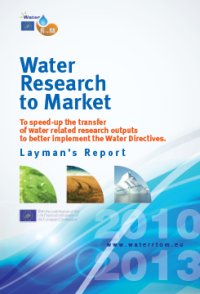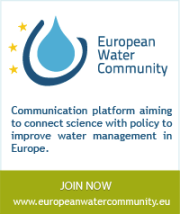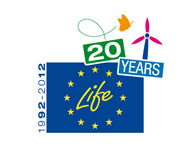Pilot for remineralization of water
| Output characterisation | |
| OUTPUT SENTENCE | Remineralization/neutralisation of drinking water through injection of lime milk suspension. |
| OUTPUT TYPE | prototype |
| WATER TOPIC | Consumption |
| KEYWORDS | lime milk suspension, water treatment, drinking water |
| MARKET NEED TAILORED | End of neutralite exploitation in Britanny, implying extra costs in neutralization/remineralization, new solutions were needed in order to contain upkeep costs. |
| OUTPUT DESCRIPTION | This output is a prototype on a small scale drinking water plant (for 170 people), dedicated to remineralization and neutralisation of waters, for small local authorities not having a big budget. |
| STATE OF DEVELOPMENT | A 1 m3/h prototype has been successfully tested as a pilot, using recycled parts. A mobile unit is currently in development and construction with new parts, in order to test in real life conditions up to 10 m3/h. |
| INNOVATIVE ASPECTS AND ADVANTAGES | No extra costs linked to neutralite usage Investment in the beginning is twice cheaper, compared to a classical neutralization/remineralization. Micronized lime milk suspension wasn't tested before on small plants, and was usually injected at the beginning of the process, not at the end. |
| INTELLECTUAL/INDUSTRIAL PROPERTY RIGHTS | Office International de l'eau at the moment. Information should be made public at the end of 2014. |
| TRANSFERABILITY | Any small/medium drinking water plant with acidic or soft properties for the treated water, up to 10 m3/h at most for financial reasons. |
| POTENTIAL USERS/CLIENTS | Any water utilities or local authorities managing their own plants |
| BUSINNESS CASE | Yes |
| Estimation of risks | |
| INNOVATIVE DISADVANTAGE | Upkeep costs are rather high. The installation is twice cheaper considering investment costs, compared to classical remineralization units, but this advantage gets weared thin after 10-12 years of intensive use. |
| EVALUATION OF RISKS FOR OUTPUT USERS | Investment is low, upkeep costs can get out of hand if not watched carefully. Filters for the particles of lime milk can be clogged occasionnally. There are a few neutralisation processes already existing, but remineralization wasn't existing on small/medium drinking water plants. |
| ECONOMICAL RISKS | No risk on investment, low risk on running operations |
| TECHNICAL RISKS | Low risk |
| MARKET RISKS | Low risk |
| SOCIAL RISKS | No risk |
| Steps ahead | |
| NEXT STEPS TO ACHIEVE THE STATUS 'READY TO USE' | Pilot tests on real life conditions |
| INVOLVEMENT OF THE OWNER FOR THE NEXT STEPS | Research for potential users in order to run tests |
| TYPE OF PARTNER FOR THE NEXT DEVELOPMENTS | SME for CO2 injection |
| TASKS TO BE PERFORMED | Completion of pilot unit Tests of pilot unit in real life conditions |
| Estimation of ressources | |
| RESOURCES FOR NEXT STEPS | Financial support for tests on hands. |
| FORESEEN COSTS FOR NEXT STEPS | Up to 20 000 € for real life conditions tests on a small drinking water plant. |
| Contact | |
| TECHNICAL CONTACT | Office international de l'eau, Rémy Thalamy |
| COUNTRY | FRANCE |
| WATER RTOM CONTACT | Office international de l'eau |
| Background | |
| PROJECT NAME | Remineralization of soft or agressive waters using micronized lime milk |
| PROJECT ACRONYM | Lime Milk |
| PROJECT DESCRIPTION | Development of a pilot unit for treatment of soft or agressive waters, using micronized lime milk |
| LEADER | Office International de l'Eau |
| TEAMS INVOLVED | Office International de l'Eau, SAUR, Veolia, Conseil général de la Creuse |
| COUNTRIES INVOLVED | France |
| PROJECT LOCATION | France |
| FUNDING ORGANISATION | Conseil général de la Creuse, SAUR, Veolia |




